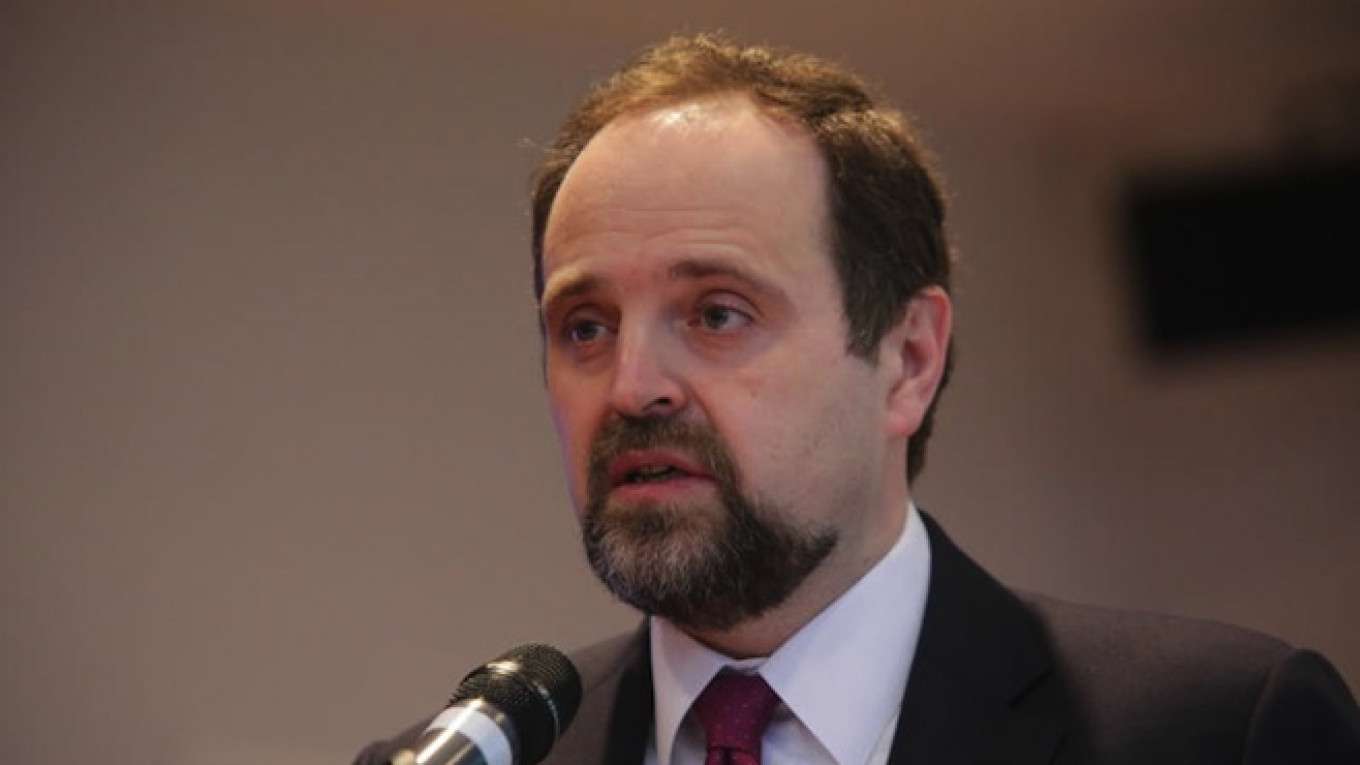Russia hopes that financing and technology from Arab states and other countries will help its firms weather the fallout from Western sanctions imposed over the Ukraine crisis, Russia's Minister of Natural Resources, Sergei Donskoi, said.
U.S. and EU sanctions have hit Russian individuals and companies, including energy champions Rosneft and Gazprom, preventing them from accessing long-term financing and high-end technology.
One way that Russia, one of the world's top oil and gas producers, has tried to offset the sanctions is to boost ties with China, the global leader in energy consumption, in the hope it can wean itself off its dependency on European markets.
But Donskoi, in an interview for the Reuters Russia Investment Summit, said Moscow was also exploring other avenues.
"We have already talked about Asian countries, and of course we are also looking at European countries, which have not imposed sanctions but which have technology and equipment that could be purchased," he said.
"[But] Arab countries should be mentioned too. They have funds and, in many cases, technology."
Donskoi declined to name potential projects Arab companies were interested in, citing the sensitivity of such talks.
However, the Kremlin has said that Rosneft, the world's top-listed oil company by output, had been in talks with the UAE's Mubadala Petroleum to jointly develop two east Siberian projects, Tass Yuriakh and Verkhnechonskoye.
Sanctions have hit Rosneft's plans to tap uncharted icy Arctic waters, beneath which billions of barrels of oil and gas are thought to be hidden.
It was forced to halt its work in the Kara Sea on Russia's Arctic shelf, and ExxonMobil also had to withdraw from drilling exploration wells there. The Energy Ministry says it estimates Russian companies will only relaunch oil exploration drilling in the Kara Sea in 2020-21.
Donskoi said it would be hard to judge the precise impact from sanctions on new Arctic projects, where the first oil is not expected to be pumped before 2025-30.
While he said there had been some impact from the measures, he said minerals exploration had not yet significantly slowed.
Total investment in exploration was seen declining by 10 percent this year, he said, down from 340 billion rubles in 2014, its highest level in 15 years.
But low oil prices meant companies were adopting a more cautious approach to long-term projects, said Donskoi, with some shifting their focus onto additional exploration work at existing sites to boost their reserves.


